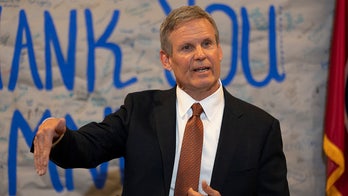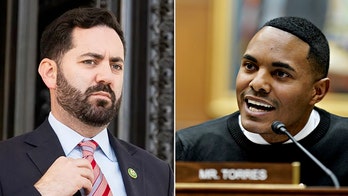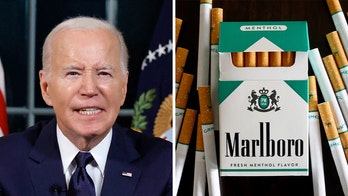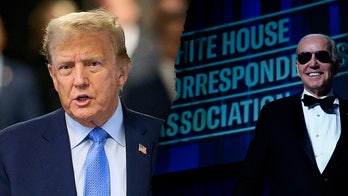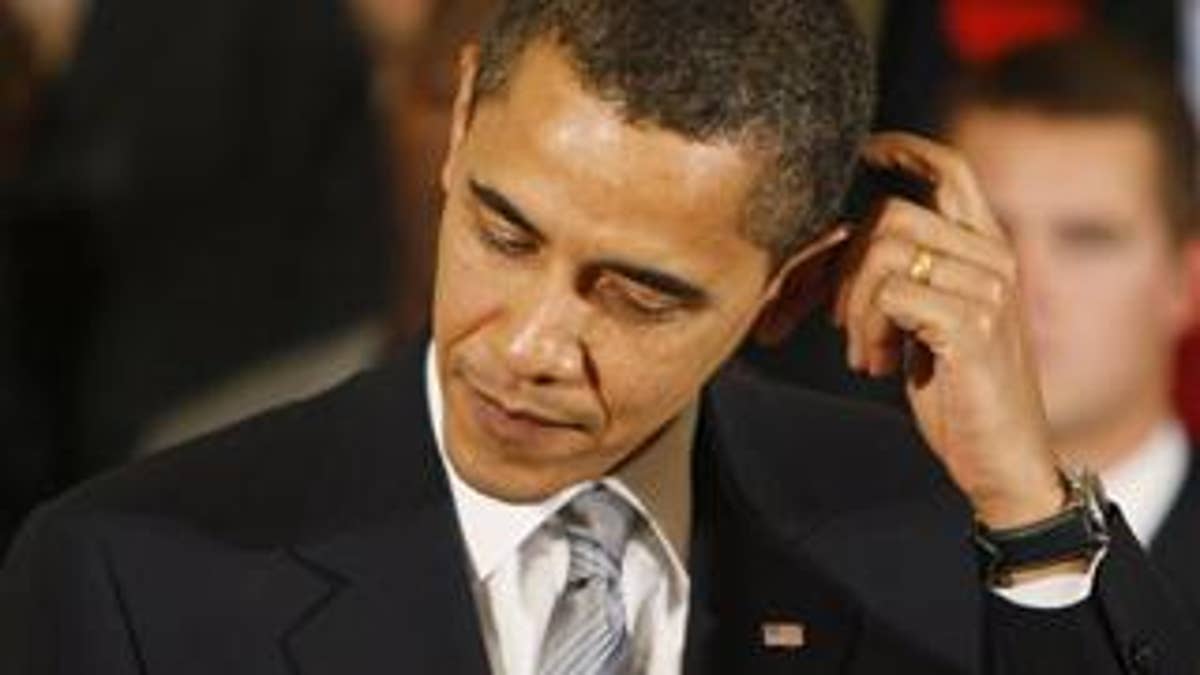
In the early months of his presidency, President Obama has shown he isn't afraid to spend billions of dollars on corporate bailouts or to run up trillions of dollars in U.S. debt to battle an economic crisis.
But in doing so, he has initiated the largest expansion of federal government since World War II and set up a massive challenge for his administration -- one that officials are already warning will be fraught with peril.
During the first 100 days of his presidency, Obama has signed a $787 billion stimulus bill into law, proposed an eye-popping $3.6 trillion budget for the next fiscal year, taken over a massive $700 billion Wall Street bailout program and created other billion-dollar programs to help grease the economic wheels.
Analysts call the spending spree "unprecedented" when the nation is not in a declared war, and they say the challenges that accompany it are a logical result.
"You take any organization in the world and you double its size in 90 days, it's going to have a hard time managing that transition," said William Gale, vice president and director of the economic studies program at Brookings Institute.
"The sheer management issues that come up are very important," Gale said, "because I can imagine the people running those projects that are about to be doubled may not want to see their face on '60 Minutes' as the poster child for government waste and useless spending."
Among the warning signs: The Government Accountability Office said Thursday that states need help covering the cost of overseeing their share of the massive federal stimulus program.
Treasury Secretary Timothy Geithner told a congressionally appointed oversight panel this week that America's banks are still broken, despite all their bailout billions. And an inspector general assigned to the bailout program concluded this week that a private-public partnership designed to buy up bad assets is tilted in favor of private investors and creates "potential unfairness to the taxpayer."
Brian Reidl, a senior policy analyst at the Heritage Foundation, said all the spending may lead a Democratic-controlled Congress to "overreach and create expensive, unworkable new programs that will not be easy to fix or cut later."
"There are significant economic risks to rapidly expanding the size of government," Reidl said. "Countries with large governments produce less wealth and create fewer jobs than countries with minimal government."
The number of programs and the dizzying array of acronyms describing them are enough to leave a Scrabble champion exhausted.
There's TARP (Troubled Asset Relief Program), TALF (Term Asset-Backed Securities Loan Facility) and PPIP(Public-Private Investment Program).
On top of that, Obama's budget proposal includes $770 billion in tax cuts over 10 years for the middle class, $150 billion for funding "green" energy sources and $634 billion toward the introduction of universal health care.
Reidl forsees legislative hurdles.
"Congress has a lot on its plate this year," he told FOXNews.com. "It will be hard for Congress to write useful legislation on energy, health and education while passing all the regular spending."
He said Obama is doing too much too fast.
"It's extremely difficult to craft intelligent legislation in so many areas at one time, especially in a president's first year, when he is facing the same learning curve that any president would face," he said.
But Gale said he believes the White House has done an "enormous" amount right in the first 100 days.
"The flip side of the very aggressive posture the administration has taken is if the economy goes through the floor, we're going to see budget deficits like you've never seen," he said.
Even if the administration is able to get all the programs up and running, Gale said, an exit strategy is lacking to extricate the federal government from the credit markets and all of the state and local government spending.
"I'm not confident that Congress or the administration will have the political discipline to keep these things temporary," he said.
"It kind of reminds me of Iraq," he said. "We're here. Now what?"

